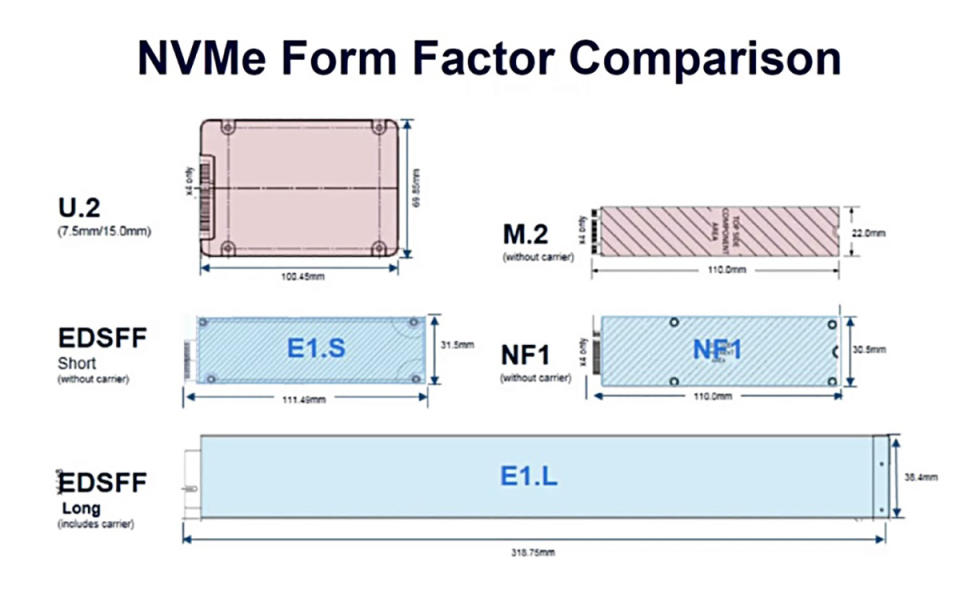Samsung's PCIe 4.0 SSDs come in a range of new form factors
The data center drives can hit speeds of up to 6,500 MB/s.
Intel’s “ruler” form factor for NVMe server SSDs once looked radical, but it’s now become mainstream. As evidence, Samsung just introduced a new line of ultra-fast PCIe Gen 4 drives derived from Intel’s original design. The PM9A3 SSDs come not only in the standard M.2 NVMe format, but also in the newfangled E1.S format (a shorter version of Intel’s ruler) and U.2 — which looks like a SATA drive but is much, much faster.
The E1.S and U.2 variants of these drives (designed for data centers, not consumers) can hit up to 6,500 MB/s read and 3,500 MB/s write speeds and capable of 900,000 IOPS (random reads). These speeds are double what PCIe 3.0 drives can handle because PCIe 4.0 has double the bandwidth. The M.2 version of the PM9A3, by contrast, can “only” run at 3,500/1,750 MB/s.

The new E1.S form factor is designed to be more space-efficient than current SATA and U.2 designs. Drives are just a bit longer than M.2, but can fit more NAND chips and better handle hotplugging, thermal and other issues. Samsung notes that data centers using the E1.S design can save space by cramming more SSDs into the same form factor as SATA/U.2 drives, with the benefit of lower cost of ownership. (For more information on all the latest SSD form factors, check out this description from the Storage Networking Industry Association (SNIA).
How does this apply to the average user? E1.S drives aren’t really designed for personal computers, and while some gaming motherboards have U.2 slots, drives are expensive and not mainstream. Still, it shows the potential speeds for future Samsung PCI 4.0 NVMe drives, with 6,500 MB/s being well above anything else on the market right now. Those speeds might only be marginally useful for gaming, but they’ll be a big help for content creation, particularly if you’re deal with RAW 8K files.
Update 5/14/2020 12:11 PM ET: The post has been updated with a description of all the latest SSD form factors from the Storage Networking Industry Association (SNIA). (Thanks, @LebanonJon!)
